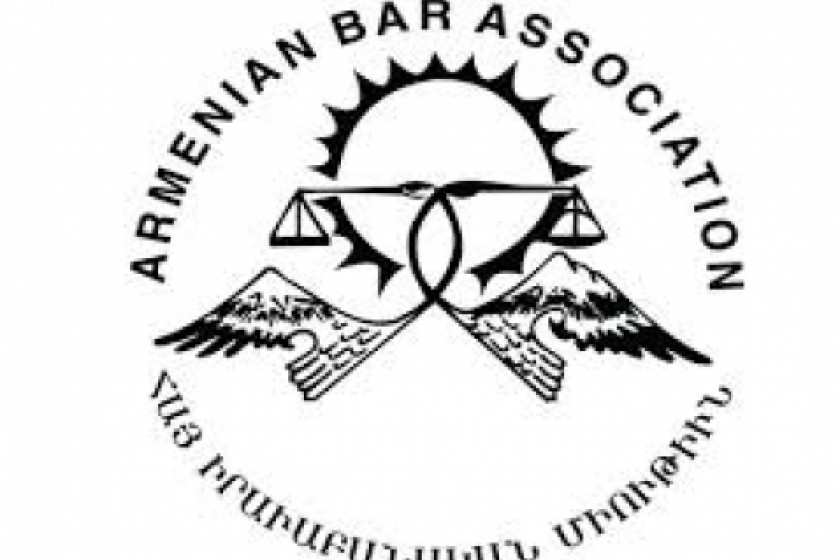Where politics is the business of private interests, a constitution cannot become the business of politics. It appears that, today, the Republic of Armenia stands precariously close to rendering its constitution the latest implement of political business.
At issue are the proposed constitutional changes to the Constitution of the Republic of Armenia that, if approved by referendum, would change the Republic from a presidential to a parliamentary system, effectively allowing the presiding head of state to govern beyond constitutionally-imposed term limits. The concern of this Association—the largest organization of Armenian lawyers, judges and legal academics in the diaspora—is that the nature of the political discourse surrounding the debate on these constitutional changes may result, again, in a political outcome of questionable legitimacy.
To be clear, when studying the source of a state’s constitution, the will of the people should not be confused with the will of the politicians. In fact, one of the very purposes of a constitution is to safeguard the people’s will from the vagaries of its own government; the document itself an attempt by the citizenry to establish the very limitations imposed on the state in the governance of its people. In a word, a constitution protects rights inalienable from the clutches of political machinations. And, as such, it should not be obliged to entreat those to whom it affords transient power to respect its enduring sanctity.
Constitutions permit change, true. But, in modern constitutional frameworks, procedural facility and political expedience are not reasons for normative change; in other words, that a procedural mechanism exists to allow for constitutional amendment does not mean that there should be constitutional amendment. That normative issue—whether there should be constitutional change—is governed by the purpose for which constitutional change is sought. Simply put, the purpose underlying the desire to change the constitution—not the fact that a procedural avenue allows for the change—should govern whether constitutional change is warranted.
What naturally follows, then, is the question as to how a citizenry determines that the purpose of a proposed constitutional change warrants the modification of the citizen’s contract with its government. In a representative democracy, this purpose is revealed when the voice of opposition is allowed to be heard and is given the opportunity to persuade. In fact, this is precisely the reason why both Article 27 of the Constitution of the Republic of Armenia and Article 10 of the European Convention on Human Rights protect political speech. And the results of such a discourse—where the voice of opposition is allowed to challenge the proponents of constitutional change and the proponents are obliged to address that challenge before the citizenry—coat the particular constitutional change, should it succeed, with necessary legitimacy.
Unfortunately, this is not the nature of the discourse prevailing in Armenia today. Recent reports of government threats to initiate criminal proceedings against certain of those in the opposition voicing objections to the constitutional amendments suggest that something entirely different is underway in Armenia. Rather than amplifying the opposition’s voice and welcoming the opportunity to refute the challenges in open debate, the government has charted an alarming course aimed at curbing—indeed criminally punishing—political speech in order to secure its proposed constitutional changes. As the measure moves to the public for a national referendum, we must caution adamantly the government against the implementation of similar tactics aimed at muzzling constitutionally-protected political speech and, indeed, public dissent.
Threatening the imprisonment of those voicing opposition to the constitutional changes harkens back to a period in our history from which our constitution had promised to deliver us. Should constitutional change result amidst a climate suppressing political speech, it will be the will of our people that again will be affronted and the fabric of its representative democracy, again frayed. As the question of constitutional change is put to the people, the government must assure that political speech is protected, not molested, while citizens debate and voice their will—lest, the government stands to shroud whatever may emerge from a stifled discourse with what has become an increasingly familiar spoor of illegitimacy.
The Armenian Rights Watch Committee is committed to studying the impact of the proposed constitutional changes on the civil and political rights of Armenians—particularly given the proposals’ patent proclivity to consolidate, rather than diffuse, political clout in governing institutions. We remain particularly concerned as to how such further political consolidation in Armenia could directly impact—indeed restrain—political speech and activism on certain historically diasporan issues, even outside of Armenia. Accordingly, we are engaged in thorough consideration of such possible ramifications with the intent of noting our leading concerns and viable alternatives in advance of the scheduled national referendum.
That said, and despite our ongoing substantive examination of the proposed constitutional changes, the Armenian Rights Watch Committee will not remain idle while the government openly threatens to criminalize the exercise of political speech—a right which, today, is still protected by the very constitution it seeks to change.
Armenian Bar Association
Executive Committee
Harry H. Dikranian
Chairman
Saro K. Kerkonian
Gary T. Moomjian
Kathryn L. Ossian
Co-Vice Chairs
Gerard V. Kassabian
Treasurer
Vanna Kitsinian
Secretary
Armen K. Hovannisian
Chair Ex-Officio
Armenian Rights Watch Committee
(ARWC)
Karnig Kerkonian
Garo B. Ghazarian
Co-Chairs
Edvin Minassian
Armen K. Hovannisian
Saro K. Kerkonian
Senior Advisors
If you found a typo you can notify us by selecting the text area and pressing CTRL+Enter

 Videos
Videos Photos
Photos




Comments (1)
Write a comment